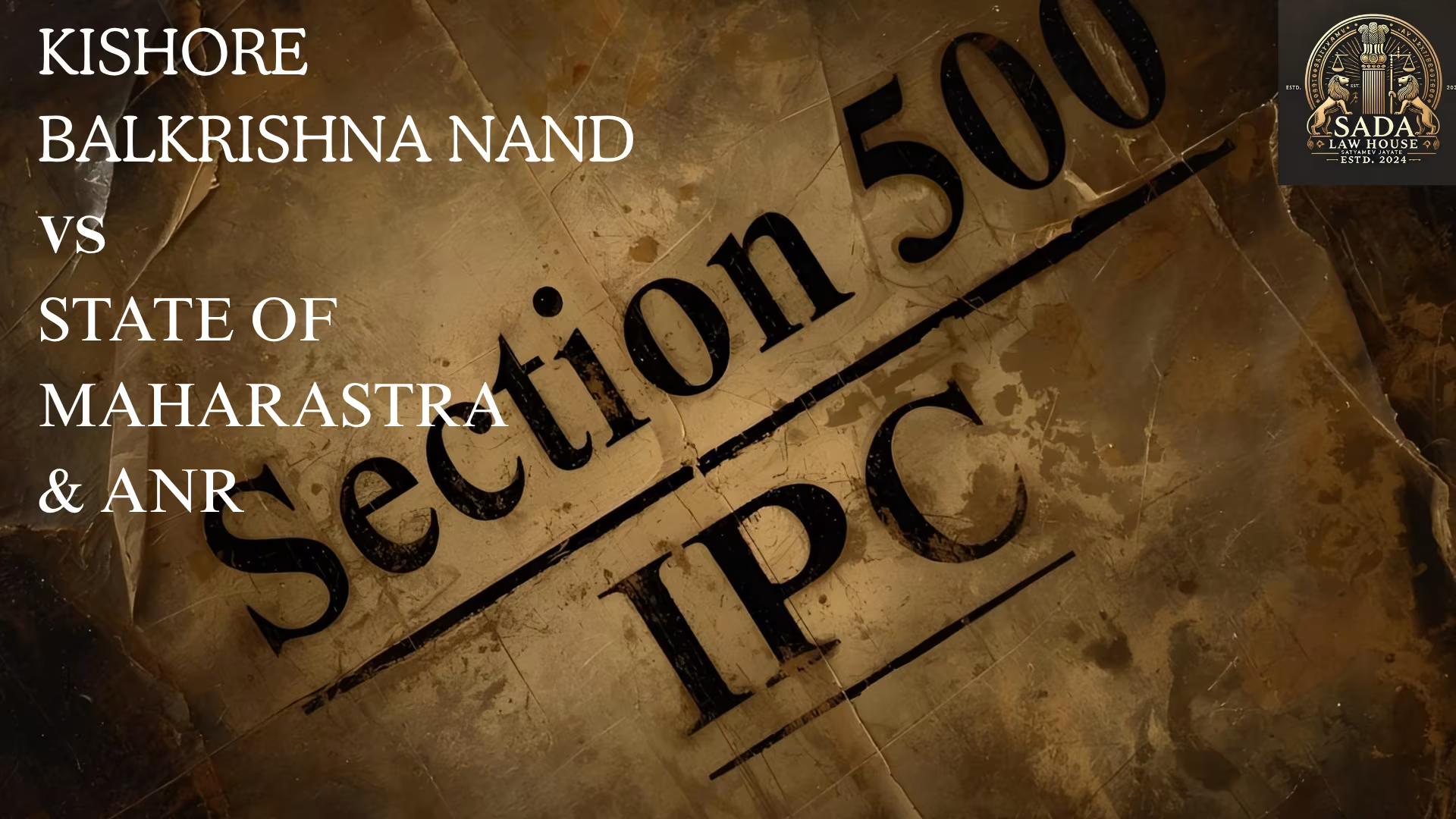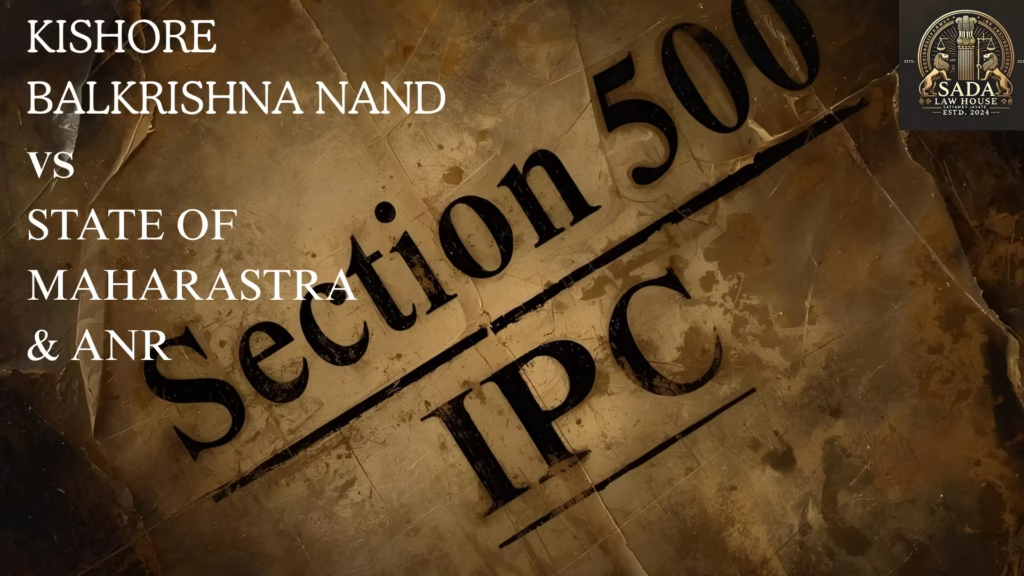Kishore Balkrishna Nand v. State of Maharashtra & Anr (2023)
- Nisha Kumari
- 10 October, 2025

Introduction
The case of Kishore Balkrishna Nand v. State of Maharashtra & Anr arose from a criminal defamation complaint under Section 500 of the Indian Penal Code (IPC). The appellant, Kishore Balkrishna Nand, had filed a written complaint with the Sub-Divisional Magistrate (SDM), alleging that the respondent had encroached upon public land and caused a public nuisance. In response, the respondent filed a defamation case claiming that the allegations had damaged his reputation.
Both the Trial Court and the Bombay High Court upheld the defamation proceedings, prompting the appellant to move the Supreme Court. The Supreme Court examined whether such a complaint, made in good faith to a lawful authority, could attract criminal defamation under Section 500 IPC or was protected under Exception 8 to Section 499 IPC.
Facts of the Case
Complaint to SDM:
On 25 January 2002, the appellant filed a written complaint before the SDM, alleging that the respondent had illegally constructed a shop on public land and was creating a nuisance attracting anti-social elements.Administrative Action:
The SDM found substance in the complaint, issued a notice to the respondent, and initiated proceedings as per law.Defamation Complaint:
While SDM proceedings were underway, the respondent filed a criminal defamation complaint under Section 500 IPC, asserting that the allegations were false and harmed his reputation.Summons and Recall:
The Magistrate took cognizance and issued summons to Nand. Later, the Trial Court recalled the summons, but the Sessions Court reinstated it upon the respondent’s challenge.High Court Proceedings:
Nand approached the Bombay High Court, but the writ petition was dismissed on technical grounds of delay.Supreme Court Appeal:
The appellant contended that his statements were made in good faith to a competent authority and therefore protected under Exception 8 of Section 499 IPC, which exempts good faith accusations made to lawful authorities.
Issue of the Case
Whether a written complaint made in good faith to a competent public authority (the SDM) about alleged encroachment and nuisance amounts to criminal defamation under Section 500 IPC, or is protected under Exception 8 to Section 499 IPC?
Judgment
Interpretation of Exception 8 to Section 499 IPC:
The Court reaffirmed that Exception 8 provides immunity from defamation charges when an accusation is made in good faith to a competent authority concerning matters within its legal authority.Application of Law to the Case:
The Supreme Court found that Nand’s complaint was directed to the Sub-Divisional Magistrate, a lawful authority empowered to act upon public encroachment issues. The complaint was private, formal, and aimed at initiating official inquiry, not at publicly maligning the respondent.Good Faith and Lack of Malice:
The Court held that Nand’s statements were made in good faith, supported by the fact that the SDM had acted upon them. There was no indication of malicious intent or reckless disregard for the truth.Court’s Finding:
Since the allegations were addressed to a lawful authority and concerned a matter within its jurisdiction, the communication was protected under Exception 8 to Section 499 IPC.Final Decision:
The Supreme Court quashed the criminal defamation proceedings, holding that no offence under Section 500 IPC was made out against the appellant.
Conclusion
The Supreme Court, in Kishore Balkrishna Nand v. State of Maharashtra & Anr, reaffirmed that bona fide complaints made to lawful authorities regarding public matters are protected under Exception 8 to Section 499 IPC. The Court emphasized that individuals should not fear criminal prosecution for defamation when reporting genuine grievances in good faith to competent officials.
Consequently, the Court allowed the appeal, quashed the defamation proceedings, and reinforced the principle that good faith communication to lawful authorities does not amount to defamation.
Case Laws







